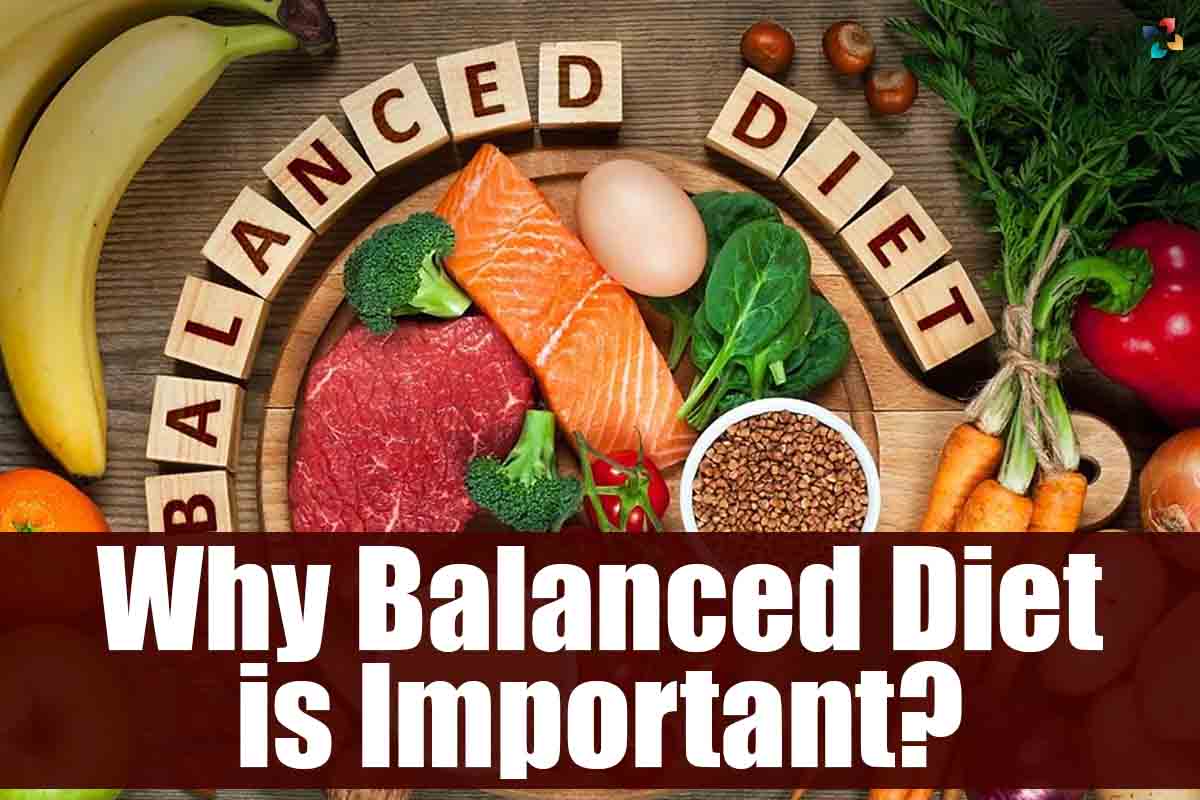For optimal health and well-being, it is necessary to eat in a way that strikes a balance between different food groups. A diet that satisfies the requirements of the body by supplying all of the essential nutrients in the appropriate proportions is said to do so. In the following paragraphs, we will discuss the Importance of a Balanced Diet, as well as the positive effects such a diet may have on our physical and mental well-being.
What is a Balanced Diet?
A diet is considered to be balanced when it consists of a range of foods from each of the following dietary groups:
- Fruits and vegetables: Fruits and vegetables are some of the best sources of vitamins, minerals, and fiber that the human body needs.
- Grains: Grains are an excellent supply of carbs, which are the primary kind of fuel used by the body. Since they include more fiber and other nutrients, whole grains are a superior option to refined grains in terms of food choice.
- Proteins: Proteins are absolutely necessary for the development and maintenance of all of the body’s tissues. Foods such as lean meats, poultry, fish, beans, and nuts are all excellent sources of protein.
- Dairy Products: Milk, cheese, and yogurt are all good sources of calcium. Calcium is essential for healthy bones and teeth, and dairy products are a great way to get it.
- Fat: The body cannot absorb some vitamins without the assistance of fats, and fats are also a source of energy. On the other hand, it is essential to choose the right kinds of fats, such as those that may be found in olive oil, nuts, seeds, avocados, and avocado oil.
Here are 10 importance of a balanced diet;
1. Offers Vital Nutrients
Maintaining a healthy and balanced diet is crucial for overall well-being. The Importance of a Balanced Diet cannot be overstated as it provides all of the essential nutrients that are required for the body to operate correctly. These nutrients include various vitamins, minerals, carbohydrates, proteins, and fats, each of which plays a unique role in preserving one’s health and preventing illness.
2. Fosters Growth and Development in a Healthy Direction

For proper growth and development, particularly in children and adolescents, having a diet that is well-balanced is very necessary. In order to build strong bones and muscles, it is necessary to consume sufficient amounts of minerals such as calcium, vitamin D, and protein in one’s diet.
3. Keeps a Healthy Weight and Body Composition
A well-rounded diet may provide assistance in the maintenance of healthy body weight. Either consuming an excessive amount of calories or an insufficient amount may cause weight growth or reduction, accordingly. A diet that is balanced delivers the appropriate proportions of nutrients and calories, which makes it easier to maintain a healthy weight.
4. Reduces the Chance of Developing Chronic Diseases
The Importance of a Balanced Diet in Reducing the Risk of Chronic Illnesses: The chance of developing chronic illnesses like heart disease, diabetes, and cancer may be decreased by eating a diet that is well-balanced. A diet that is high in fruits, vegetables, whole grains, lean protein, and healthy fats may help to decrease inflammation, manage blood sugar levels, and lower cholesterol levels, all of which are risk factors for the illnesses listed above.
5. Increases One’s Levels of Energy
By supplying the body with the nutrients and calories it needs to carry out its functions in an optimal manner, a diet that is nutritionally sound may assist to increase one’s energy levels. A diet that is high in complex carbohydrates, including those found in whole grains, fruits, and vegetables, may provide sustained energy that lasts throughout the day.
6. Improves Digestion

It is possible to enhance digestion and avoid constipation by eating a diet that is both balanced and high in fiber content. In addition to helping maintain regular bowel movements, fiber may also assist in lowering cholesterol levels and maintaining stable blood sugar levels.
7. Elevates Mood While Also Benefiting Mental Health
Furthermore, the Importance of a Balanced Diet, which is beneficial to mood and mental health is maintaining a healthy, well-balanced diet. It has been shown that eating a diet that is high in omega-3 fatty acids, which are found in fish with higher fat content, may help lessen feelings of anxiety and sadness. In addition, eating a diet that is abundant in fruits, vegetables, and grains that are whole may contribute to the maintenance of positive mental health.
8. Enhances Immune System
By supplying the required nutrients to promote immune function, a diet that is both balanced and healthy may help to strengthen the immune system. Fruits, vegetables, nuts, and seeds are excellent sources of the antioxidant vitamins A, C, and E, as well as the minerals zinc and selenium, which are all essential for proper immune system function.
9. Enhances the Overall Quality of Sleep
The quality of one’s sleep may also be improved by maintaining a healthy diet. If you want to improve the quality of your sleep, eating meals that are high in tryptophan, an amino acid that is found in foods that are high in protein, may help. Tryptophan may be found in foods including turkey, chicken, fish, and tofu, all of which are rich protein sources.
10. Contributes to a Longer Lifespan

Last but not least, eating a healthy, well-rounded diet might increase your chances of living a long and healthy life. The consumption of a diet that is abundant in whole foods and nutrients may assist in the prevention of chronic illnesses, the maintenance of a healthy weight, and the improvement of general health and well-being.
BOTTOM LINE
The importance of a balanced diet lies in its ability to provide the necessary nutrients and calories to support bodily functions, promote healthy growth and development, maintain a healthy weight, reduce the risk of chronic diseases, boost energy levels, improve digestion, enhance the immune system, improve mood and mental health, improve sleep quality, and promote longevity.
All of these benefits can be attained by eating foods rich in whole grains, fruits, vegetables, lean protein, and healthy fats. Consuming a wide range of foods from each of the five food categories — fruits and vegetables, lean proteins, whole grains, and healthy fats, for example — is essential to maintaining a balanced diet and enjoying the advantages that come along with it.









